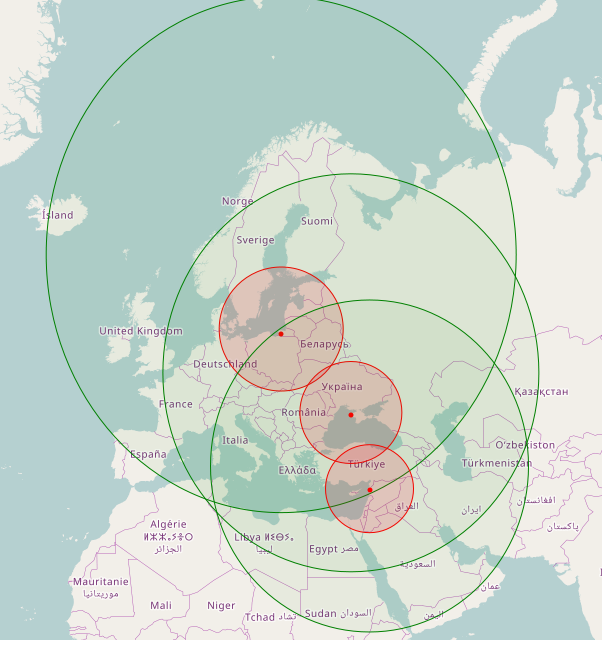Weekly Snapshot
20-26 January 2019
1. Tensions Rise in Venezuela
As Venezuela goes through a leadership crisis, geopolitical tensions continue to rise. Earlier this week, the Venezuelan opposition leader Juan Guaido took a public oath to become the interim president of Venezuela. This was after Nicolás Maduro, Venezuela’s president since 2013, used blatant anti-democratic and illegal means to win the election.
Maduro’s seizure of power and Guaido’s declaration of interim Presidency have caused a crisis. Much of the Venezuelan defense department is still in support of the Maduro regime, while much of the populace of Venezuela favors Guaido.
Internationally, countries have been taking sides as well. Russia, China, Turkey, Iran, and Mexico all still recognize Maduro as the president of Venezuela. Guaido’s claims have been recognized by the Organization of American States along with nations including Argentina, Brazil, Canada, Colombia, Ecuador, Peru, and the United States.
After the United States recognized Guaido’s claims, Maduro cut off all diplomatic relations with the US. After Maduro ordered all diplomats out of the United States, he started to backtrack, opening up communications with the Trump Administration for the next 30 days.
2. Caesar Syria Civilian Protection Act of 2019
The US House of Representatives passed a bipartisan bill to put more pressure on the Syrian Government. The Caesar Syria Civilian Protection Act of 2019 requires that the President place sanctions on anyone who does business with the Syrian government.
This bill is an attempt to keep putting pressure on the Assad regime in order to enact change. Since the fighting in Syria is slowing down, several countries are looking to re-establish relations with the Syrian government.
The bill still must pass the Senate before going before the president.
3. Possible arms control talk between Russia and the United States
With tensions between the United States and Russia high, arms control may be on the table at next week’s United Nations meeting in Beijing.
Both the United States and Russia claim the Intermediate-range Nuclear Forces (INF) treaty has been breached.
According to claims by the United States, Russia has broken the deal that dates back to 1987 by developing and deploying their ground-launched Novator 9M729 nuclear-capable cruise missile.
This weapon has a range well over the 5,000 km limit and has been placed in locations that threaten the United States’ European allies.
Russia, on the other hand, accuses the United States of fabricating a false narrative to leave the accord and says that the missile is in compliance with the treaty.
The Trump administration has been open about suspending its obligation to the treaty if Russia does not take actions to comply with the INF treaty by February 2nd. This has put tensions between the two countries that we have not seen since the cold war. Under Secretary of State Andrea Thompson has said that the suspension of obligations by the United States would be reversible if Russia were to once again comply, however, says Thompson, “I’m not particularly optimistic.”
4. Russian bill looking to stop free speech
Expressing blatant disrespect toward the government could earn Russians 15 days in jail, according to a bill that just passed their lower house of parliament.
The bill proposes fines up to 5,000 rubles ($76) or a 15-day jail sentence to people that express blatant disrespect toward government agencies, the state, the public, the Russian flag or constitution. A second bill that was voted on seeks to impose fines of 5,000 rubles on individuals and 1 million rubles on companies that spread “fake news.”
This kind of suppression of speech does not fit with the democratic ideals Russia is said to have. This form of censorship isn’t unlike that of the Soviet Union using the Goskomizdat, Gosteleradio, and Goskino to censor critiques of the Communist Party.
In the last five years, the Russian government has passed several laws that harken back to a communist mindset. And in keeping up with the times, they’ve moved from monitoring newspapers and radio shows to now monitoring the internet. They’ve required search engines to delete some search results that go against the Russian narrative. They’ve passed bills that require messaging services to share encryption keys with security services, all in the name of state security.





 PAI is a think tank devoted to research and analysis of political, philosophical, economic, social, and cultural issues from a uniquely Midwestern perspective. We are grounded in the principles of classical conservatism, which has roots in the very foundation of Western civilization and the classical period.
PAI is a think tank devoted to research and analysis of political, philosophical, economic, social, and cultural issues from a uniquely Midwestern perspective. We are grounded in the principles of classical conservatism, which has roots in the very foundation of Western civilization and the classical period.